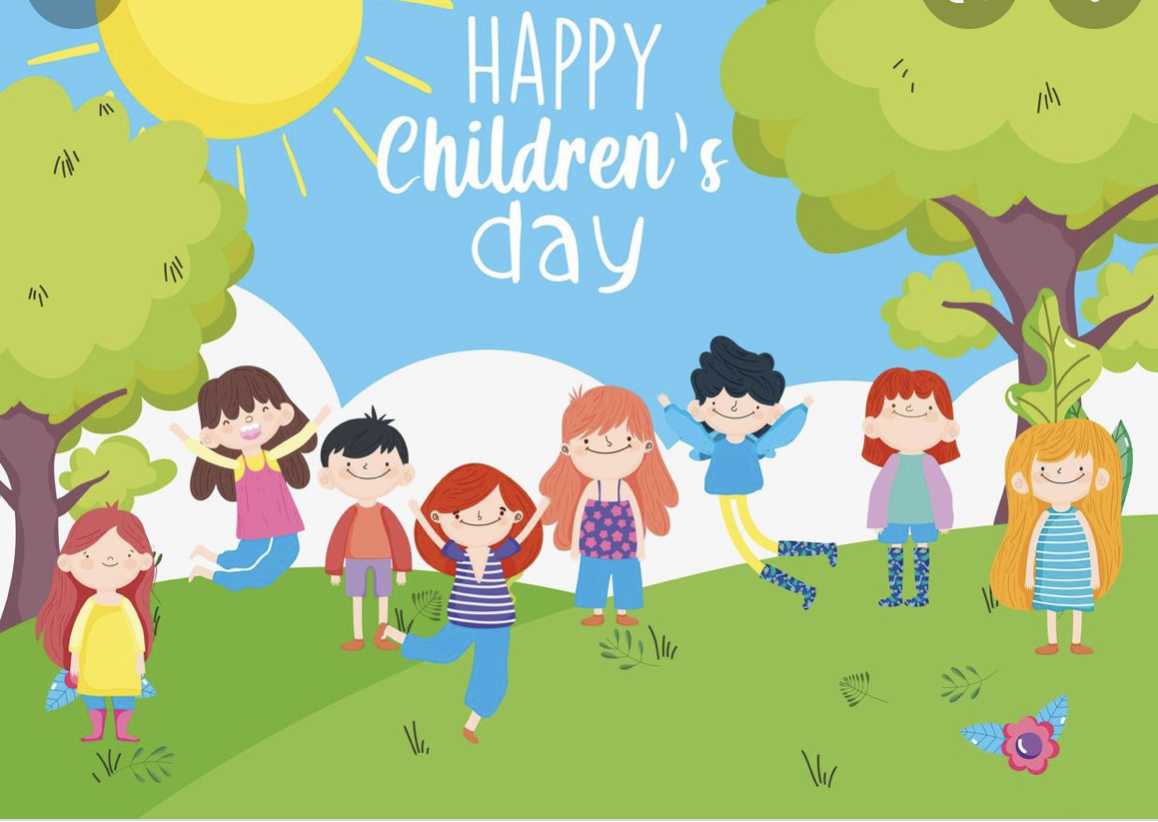Children's Day is a commemorative date celebrated annually in honor of children, whose date of observance varies by country. In 1925, International Children's Day was first proclaimed in Geneva during the World Conference on Child Welfare. Since 1950, it is celebrated on June 1 in most Communist and post-Communist countries. World Children's Day is celebrated on 20 November to commemorate the Declaration of the Rights of the Child by the UN General Assembly on 20 November 1959. In some countries, it is Children's Week and not Children's Day.
Origins
Children's Day began on the second Sunday of June in 1857 by Reverend Dr. Charles Leonard, pastor of the Universalist Church of the Redeemer in Chelsea, Massachusetts: Leonard held a special service dedicated to, and for the children. Leonard named the day Rose Day, though it was later named Flower Sunday, and then named Children's Day.
Children's Day was first officially declared a national holiday by the Republic of Turkey in 1920 with the set date of 23 April. Children's Day has been celebrated nationally since 1920 with the government and the newspapers of the time declaring it a day for the children. However, it was decided that an official confirmation was needed to clarify and justify this celebration and the official declaration was made nationally in 1929 by the founder and the President of the Republic of Turkey, Mustafa Kemal Atatürk.
Global Adoption
International Children's Day was first proclaimed in Geneva during the World Conference on Child Welfare in 1925. On 4 November 1949, 1 June was established as the International Day for Protection of Children by the Women's International Democratic Federation in Moscow. Since 1950, 1 June is celebrated as Children's Day in many Communist and post-Communist countries.
On 14 December 1954, a joint resolution by India and Uruguay was passed in the UN General Assembly to encourage all countries to institute a Universal Children's Day, firstly to promote mutual exchange and understanding among children and secondly to initiate action to promote the ideals of the UN Charter and the welfare of the world's children.[9] On 20 November 1959, The United Nations adopted the Declaration of the Rights of the Child. World Children's Day is celebrated on 20 November to commemorate the Declaration of the Rights of the Child by the UN General Assembly on 20 November 1959.
Recent Initiatives
In 2000, the Millennium Development Goals outlined by world leaders to stop the spread of HIV/AIDS by 2015. Albeit this applies to all people, the primary objective is concerning children. UNICEF is dedicated to meeting the six of eight goals that apply to the needs of children so that they are all entitled to fundamental rights written in the 1989 international human rights treaty. UNICEF delivers vaccines, works with policymakers for good health care and education and works exclusively to help children and protect their rights.
In September 2012, the Secretary-General Ban Ki-moon of the United Nations led the initiative for the education of children. He firstly wants every child to be able to attend school, a goal by 2015. Secondly, to improve the skill set acquired in these schools. Finally, implementing policies regarding education to promote peace, respect, and environmental concern. Universal Children's Day is not just a day to celebrate children for who they are, but to bring awareness to children around the globe that have experienced violence in forms of abuse, exploitation, and discrimination. Children are used as laborers in some countries, immersed in armed conflict, living on the streets, suffering by differences be it religion, minority issues, or disabilities. Children feeling the effects of war can be displaced because of the armed conflict and may suffer physical and psychological trauma. The following violations are described in the term "children and armed conflict": recruitment and child soldiers, killing/maiming of children, abduction of children, attacks on schools/hospitals and not allowing humanitarian access to children. Currently, there are about 153 million children between the ages of 5 and 14 who are forced into child labor. The International Labour Organization in 1999 adopted the Prohibition and Elimination of the Worst Forms of Child Labour including slavery, child prostitution, and child pornography.
A summary of the rights under the convention on the Rights of the Child can be found on the UNICEF website.
Canada co-chaired the World Summit for children in 1990, and in 2002 the United Nations reaffirmed the commitment to complete the agenda of the 1990 World Summit. This added to the UN Secretary-General's report We the Children: End-of Decade review of the follow-up to the World Summit for Children.
The United Nations children's agency released a study referencing the population increase of children will make up 90 percent of the next billion people.
The officially recognized date of Children's Day varies from country to country. In Nigeria, it is celebrated on May 27th yearly.
Children's Day is celebrated on 1 June in former Soviet Union states (including Armenia, Azerbaijan, Belarus, Estonia, Georgia, Kazakhstan, Kyrgyzstan, Latvia, Lithuania, Moldova, Russia, Tajikistan, Turkmenistan, Ukraine, Uzbekistan) as well as other former or current communist states (Albania, Angola, Benin, Bosnia and Herzegovina, Bulgaria, Cambodia, Croatia, Cuba, Czech Republic, Slovakia, Ethiopia, East Germany, Kosovo, Laos, Mongolia, Montenegro, Mozambique, Mainland China, North Macedonia, Poland, Romania, Serbia, Slovenia, Tanzania, Vietnam and Yemen, and to the lesser extent in Israel due to the migration of its Soviet Jewish population). This includes 25 countries which regained independence from USSR, seceded from Yugoslavia Federation, as well as Czechoslovakia and Ethiopia after their respective splits.
World Children's Day is celebrated on 20 November to commemorate the Declaration of the Rights of the Child by the UN General Assembly on 20 November 1959.
